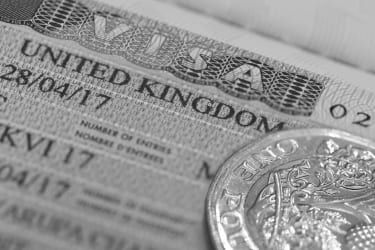
UK-EU Business Travel - Understanding country-specific visa requirements
Following Brexit UK citizens no longer enjoy free movement across the EU and EU citizens no longer have the right to freely enter the UK. Those looking to do so will therefore need to understand and comply with country-specific visa requirements.
This article sets out some of the matters EU and UK citizens should be aware of before travelling for business purposes.
EU Citizens travelling to the UK
EU nationals do not need to apply for a visa before travelling to the UK for a business visit. The can secure leave to enter as a visitor at the border.EU nationals travelling to the UK for business purposes are permitted to remain in the UK for up to 6 months. Though these visitors are not permitted to work in the UK, they are permitted to carry out business activities including attending meetings, negotiating and signing deals, and carrying out site visits. During a visit an employee of an overseas based company may come to the UK to advise and consult, trouble-shoot, provide training and share skills and knowledge with UK employees of the same corporate group, provided no work is carried out directly with clients.Business travellers should ensure they are familiar with the list of permitted activities before travelling to the UK to reduce the risk of breaching conditions of stay. It may also be helpful to review the list of prohibited activities before travel.Those planning to come to the UK to work on a more permanent basis must apply for entry clearance under a relevant work, global mobility or business category to do so.
UK citizens travelling to the EU/Schengen Area
The situation is a little more complex for UK citizens seeking to travel for business in the EU and Schengen Area.The Schengen Area is an area of Europe in which the countries have abolished their internal borders to allow for free movement of people. It is comprised of most EU Member States (save Bulgaria, Croatia, Cyrpus, Ireland and Romania), and also includes Iceland, Lichtenstein, Norway and Switzerland. Unlike nationals of most non-Schengen countries, British citizens do not need to apply for a Schengen visa to travel into the Schengen area, but they must comply with the time limits imposed on visitors, including business visitors. This means that business visitors must spend no more than 90 days in the Schengen Area in any given 180-day period.The 180 days period is 'rolling' meaning that any time a UK visitor wants to enter the Schengen area, they must count back 180 days to make sure they have not already reached the 90-day limit. It is important to note that both tourism and business activities will count towards the 90-limit meaning if a person spends 7 days as a tourist in Spain, and a further 5 days in France a business visitor, this will be calculated as 12 days rather than 5. If a visitor spent a further 30 days in Bulgaria however, this would not alter the calculation as the rule only applies only to the countries that have chosen to join the Schengen Area.Failure to correctly calculate time spent in the Schengen areas can have adverse consequences.If a visitor is found to have 'overstayed' their 90-day permission, they may be removed from the area, banned from re-entering, and/or face a fine.The second issue for UK citizens to contend with is the varied definition of business activities throughout the EU and Schengen Area. While the UK clearly defines which activities are and are not permitted to be carried out by business visitors, there is no equivalent EU definition which can be applied to all counties.This means that before travelling, a visitor must check the specific rules of the destination country to ensure their proposed activities are permitted. The definition of business activities may vary significantly between each country therefore to avoid breaching the conditions of stay, a visitor must be diligent.The UK government has created a guide for each EU and Schengen country which sets out the various visa options and permissions required of UK Citizens.There are no restrictions for UK citizens who wish to live or work in Ireland.It is anticipated that a mandatory online visa waiver scheme will be introduced from November 2023. This will be similar to the US ESTA visa waiver scheme.Once introduced, UK citizens will need to apply for ETIAS permission before visiting the Schengen Area to cross an external border into the area. The European Travel Information and Authorisation System aims to increase security within the Schengen area. The application process is online and applications should only take a few minutes to complete.ETIAS visa waiver permission will be valid for multiple stays of up to 3 months in any of the Schengen countries.ETIAS will be valid for business activities such as attending a meeting, conference, or other business related events. A visitor with ETIAS permission will not, however, be permitted to enter into paid employment in a European country. To do so, they will need to understand the work visa requirements in the European country in which they intend to work and will need to ensure they have an appropriate visa in place before commencing employment in that country.
If you have any queries on the topics discussed please get in touch with Megan Moorhouse or the business immigration team.
The content of this page is a summary of the law in force at the date of publication and is not exhaustive, nor does it contain definitive advice. Specialist legal advice should be sought in relation to any queries that may arise.
